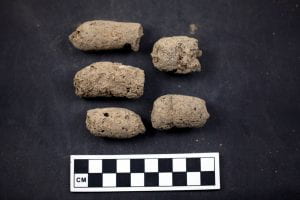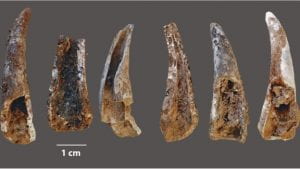Archaeology has a strong presence in the news. It is rare that I don’t find some new discovery or article about relating to archaeology while scrolling through my Facebook news boards. Recently, some very interesting research has been released to the public.
The Crew of the Mary Rose
The Mary Rose is a ship build for Henry VIII King of

Image of the Mary Rose
Tudor England. It sank in 1545 while fighting the French and lost its crew of 400-600 sailors. Recent studies on the ancestry of the crew have discovered some very interesting things. Based on the 10 discovered skeletons, most of the crew were from the Mediterranean and Southern Europe. On member in particular, dubbed Henry, was found to be from Morocco or Algeria based on his skeletal features. Isotope analysis of his teeth indicated, however, that he was raised in Portsmouth. To read more about Henry and the Mary Rose so to BBC’s article here.
Archaeology is the….dog’s poop….
Recent research conducted on paleofeces discovered that many of the samples thought to be human were actually dog. Christina Warriner and her graduate student collected DNA samples from both human and dog poop and a variety of other elements that could end up in poop and created a program called coprolID which has the ability to differentiate between the samples. The increased amount of dog poop in the record may not shed too much light only human patterns but it has the potential to increase our knowledge of dog domestication. To read more check out the article in Science Magazine here.
A Feast of Sharks and Dolphins
For a long time fishing has bee n seen as a hallmark of modern humans. The earliest site of mass seafood consumption dates to 160,000 in southern Africa. New evidence indicates that Neanderthals in Figuera Brava in Portugal also consumed large amounts of seafood including sharks, dolphins, eels, shellfish, fish and a variety of other species some 106,000-86,000 years ago. Evidence shows that seafood consisted of 50% of these Neanderthals’ diets, a percentage similar to modern humans of the time. To read more see BBC’s article here.
Also follow IUP Anthropology on Facebook, Twitter, and Instagram

